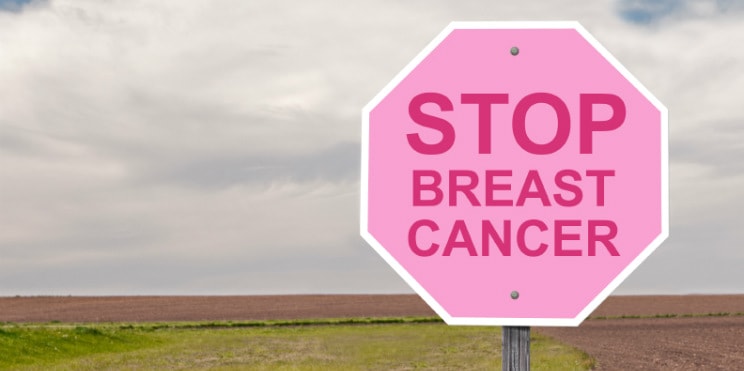About 12% of women in the US will develop invasive breast cancer in their lifetimes, according to the CDC. You can reduce your chances of being part of that statistic by making some simple life changes.
Breast cancer treatments are continuing to improve, and research has shed some light on how to reduce your risk of breast cancer. Studies have shown that making lifestyle changes geared toward healthier habits reduces your breast cancer risk factors, even for women at high-risk. Here are some simple measures you can take to protect yourself against developing breast cancer.
1. Limit Your Alcohol Intake
The more alcohol you drink, the greater your risk of developing breast cancer. Especially for women who have never given birth, drinking alcohol has been associated with an increased risk of breast cancer. Limit your alcohol consumption to one drink per day at most.
2. Quit Smoking
Studies suggest that smoking also contributes to breast cancer risks, especially for pre-menopausal women. No amount of tobacco intake is safe, but any reduction in smoking can help lower your chances of developing breast cancer.
3. Stay Physically Active
Light aerobic exercise for a minimum of four hours per week can help in breast cancer risk prevention. Exercise for 30 minutes daily, and get at least 75 minutes of more vigorous aerobic exercise weekly. In addition to cardiovascular exercise, you can do exercises that increase physical strength—pull-ups, push-ups, and leg lifts—twice weekly.
Being overweight (especially after menopause) increases your risk of many types of cancers, including breast cancer. If you struggle with eating and drinking appropriately or staying active, the best way to maintain a healthy weight is to keep a log of your daily calorie intake and exercise output. This can help keep you mindful of your diet practices. You can also try joining an exercise group or starting a walking club to help keep you motivated.
4. Evaluate Your Use of Oral Contraceptives
Women taking birth control pills are at a slightly increased risk of breast cancer, especially beyond the age of 35. The risk is significantly increased for women who take the pill and also smoke. However, in addition to preventing unwanted pregnancy, long-term use of oral contraceptives may also provide significant benefits in reducing your risk of ovarian, colon, and uterine cancers.
Still, for those at high-risk, or who are especially concerned about breast cancer prevention, avoiding birth control pills can help prevent the development of cancer.
5. Breastfeed, If Possible
Breastfeeding not only provides exceptional health benefits for your baby, but it also benefits you by reducing your risk of breast cancer. Breastfeeding for a combined total of a year or more helps in lowering breast cancer risk because of the protective and immune-boosting hormones it triggers your body to produce. These protective benefits increase the longer you breastfeed. Reduced incidences of ovarian cancer and other diseases in mothers are also associated with long-term breastfeeding.
6. Avoid Hormone Supplements
Aging is one of the greatest breast cancer risk factors, and it is exacerbated by hormone therapies prescribed to women entering menopause. Long-term use of postmenopausal hormones, such as estrogen or estrogen-plus-progestin, can increase your breast cancer risks significantly. When prescribed to prevent other diseases, like osteoporosis or heart disease, such hormone supplements should be restricted to the lowest possible dosages and time frames.
Hormone therapy used to alleviate menopausal symptoms should also be replaced with non-hormonal medications and therapies, if possible. Ask your gynecologist about alternatives that may be appropriate for your individual circumstances.
7. Know Your Family’s Medical History
Women with a family history of breast cancer should be especially diligent to avoid known contributors to breast cancer. You might be at significantly increased risk if females or males in your immediate family developed breast or ovarian cancer.
Overall, the best defense against breast cancer is simply to be proactive about your health. Get routine medical exams and breast exams. Follow through with mammograms and other tests as recommended by your physician based on your personal health profile.
The information provided herein is not meant to be used as an exclusive course of treatment or to be viewed as excluding other qualified health care opinions that account for individual patient needs. Always follow your doctor’s instructions as closely as possible.
If you are concerned about your breast cancer risk factors, contact The Woman’s Clinic at 501-664-4131 to schedule an appointment with one of our experienced gynecologists.

